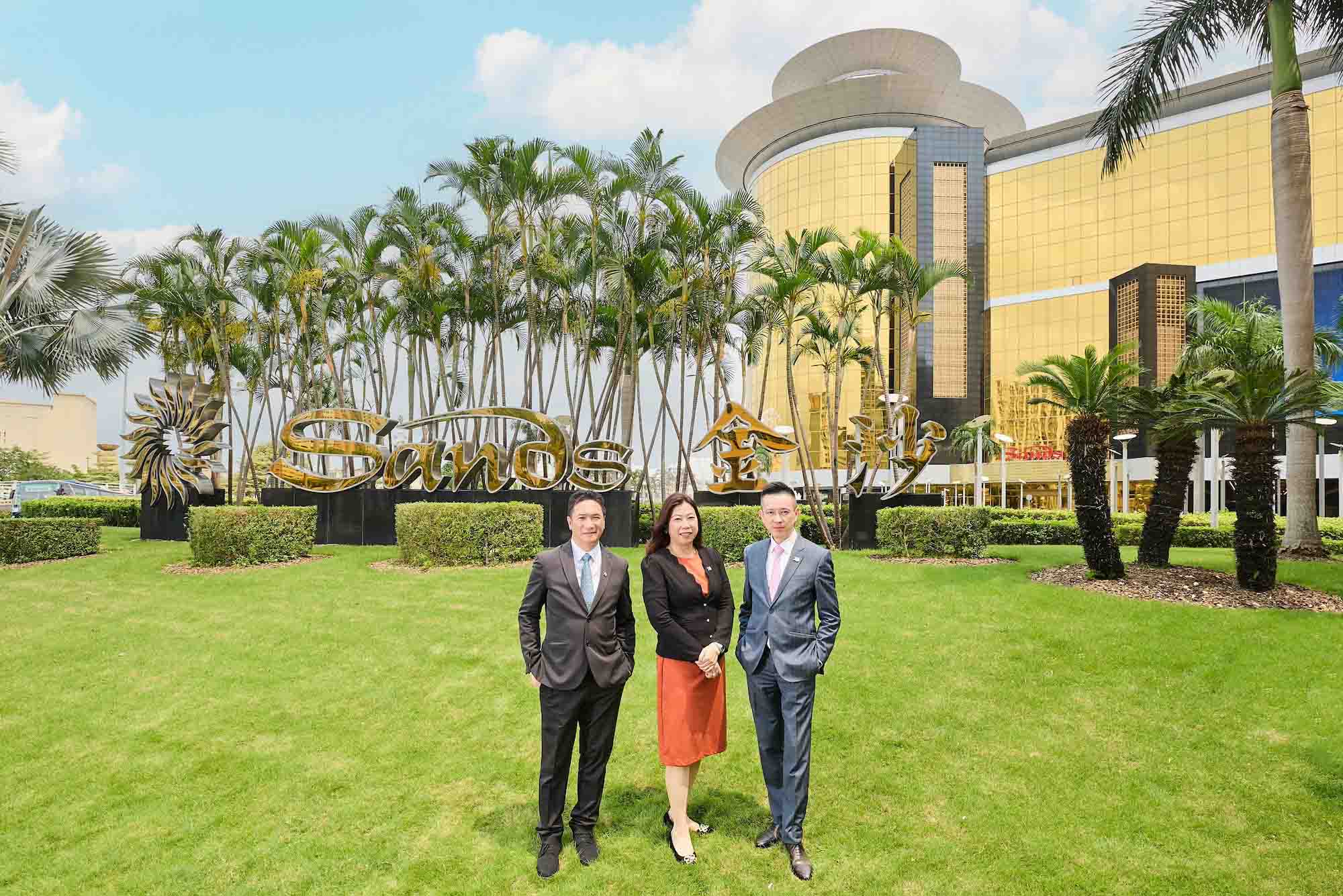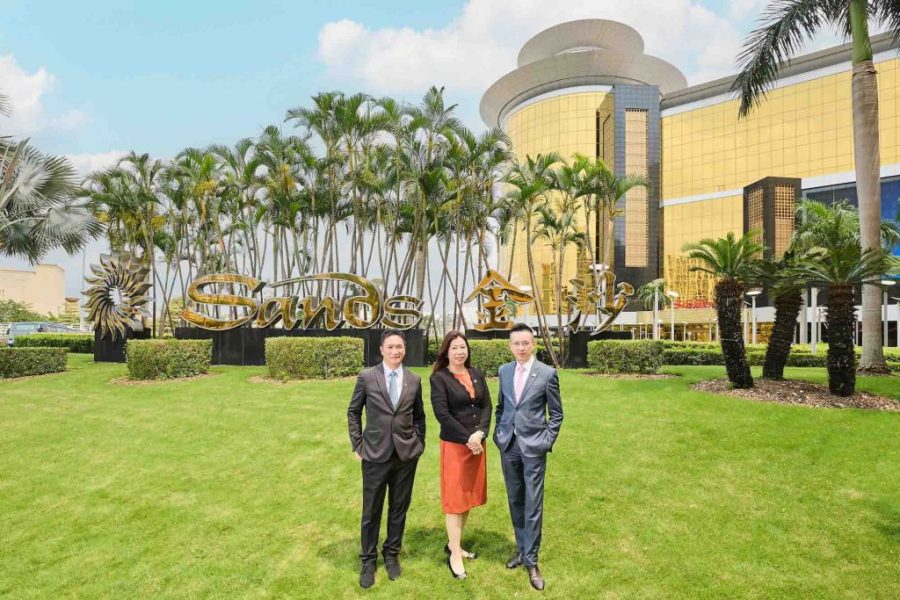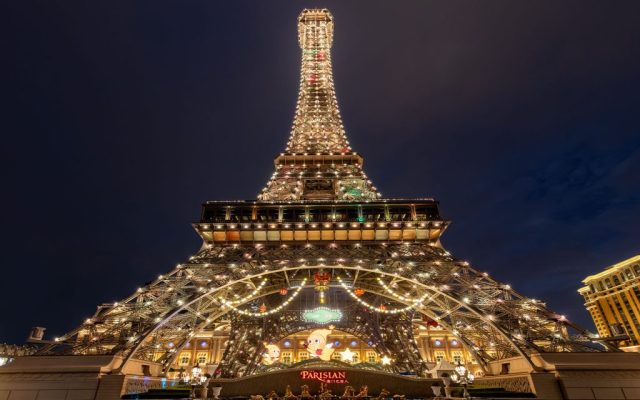When Sands Macao opened its doors on this day 20 years ago, it changed the trajectory of Macao. The city’s first Las Vegas-style integrated resort made a spectacular first impression with its now iconic neon facade and glamorous lobby, not to mention the hotel, spa, restaurants and entertainment under one roof.
A destination in itself, Sands Macao symbolised a new beginning for the city. The government had just ended the local gaming monopoly, opening the industry to a handful of foreign investors. Among the most ambitious developers was the late Sheldon Adelson, an American entrepreneur who owned Las Vegas Sands and envisioned Macao as the “Las Vegas of Asia”.
Tourism skyrocketed, real estate values surged and GDP per capita increased while unemployment plummeted. Macao’s star was on the rise, and many people felt optimistic about the future.
Once he established Sands Macao, a US$265 million investment that broke even in just nine months, Adelson turned his sights to Cotai. Where everyone else saw a murky swamp on reclaimed land between Taipa and Coloane, he saw infinite potential. Adelson built The Venetian Macao with 3,000 rooms and suites, followed by The Plaza Macao. He didn’t stop there. With the additions of Sands Cotai Central (now The Londoner Macao) and The Parisian Macao, Adelson completed his vision for a sophisticated playground inspired by some of the great cities of Europe – right here in Asia.
In just two decades, the company’s growth and influence have reverberated across many areas of society, from tourism to jobs, real estate, construction, and the hospitality industry. And it all started with Sands Macao. To celebrate the integrated resort’s 20th anniversary, we sat down with three long-serving team members from different departments to see the transformation through their eyes.
Building something from scratch
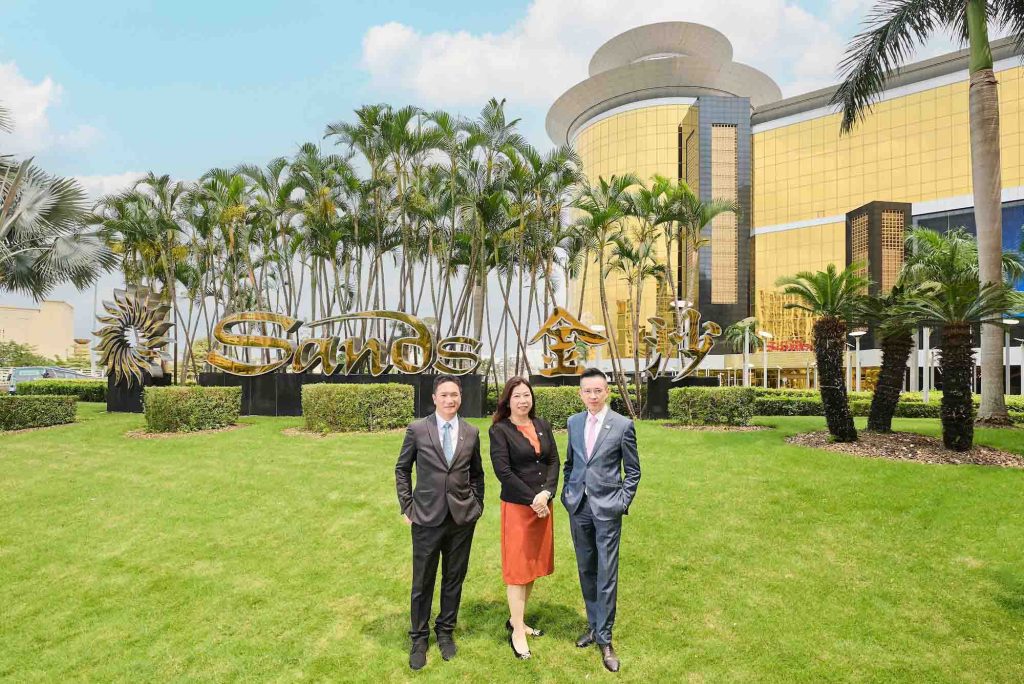
When Amy Lee walked into the office on her first day as a payroll manager in 2003, she was taken aback. With just a few months to go until the opening and Sands Macao busy on a hiring blitz, there had been no time to invest in office plans, desk assignments, or permanent furniture.
“The company was running around the clock, and I remember witnessing training sessions happening at those humble folding tables,” she says. “There were no fixed hours; we often worked until 11 pm or midnight. I was still very young and found it exciting. We built everything from scratch, giving us a great sense of achievement.”
Everyone worked tirelessly behind the scenes until the final moments. “During the few days before the opening, we were very nervous. The operation team was still doing dry runs – like trying the buffet at 888 Buffet – and checking the [gaming] chips to ensure it ran smoothly.”
In the payroll department, Amy will never forget how she led her team to ensure the first 4,000-person payroll after the opening was paid on schedule without any errors. She was so swamped she almost skipped the opening ceremony, but a colleague encouraged her to take a break. “It absolutely blew me away. It was packed with people,” she recalls, adding that the crowds became a fixture at the property. “The air in Macao was just filled with vitality.”
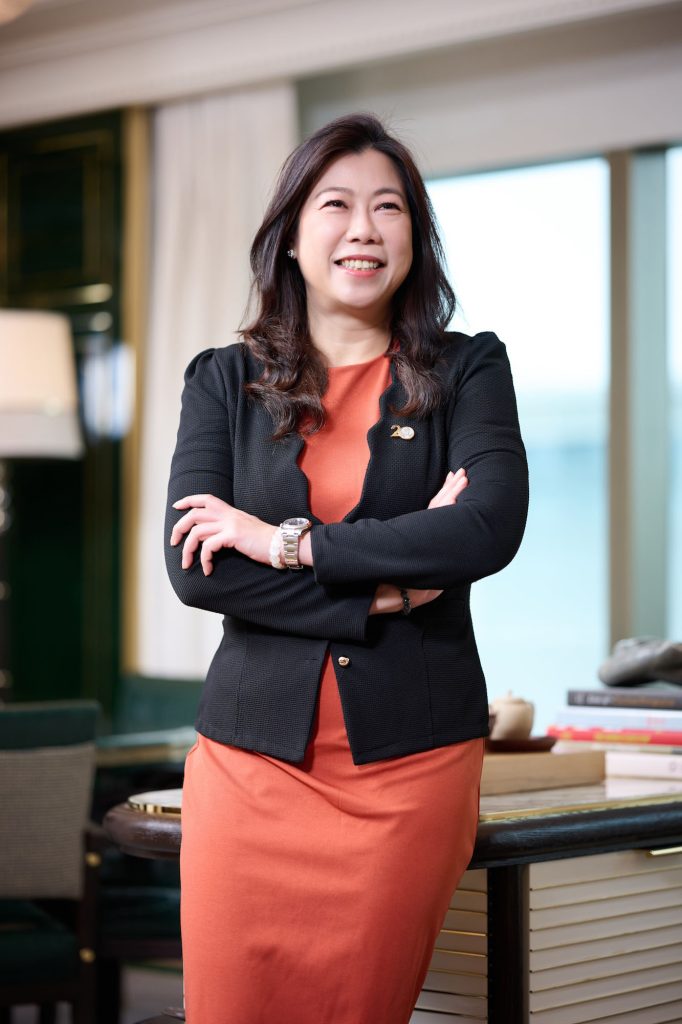
Amy stayed in payroll for a few more years before shifting her focus to other human resource-related tasks. In 2007, she was promoted to the director of payroll and HR share services and then to the director of human resources in 2009. Since 2011, she’s been the vice president of human resources.
“These opportunities through Sands have boosted my confidence and resilience,” she shares.
Even as the company has grown, from just 80 team members at Sands Macao in 2003 to over 26,000 across Sands China today, Amy says she still feels a sense of belonging. She credits her team members and the company’s HR strategy.
“When I first started, we were hiring like crazy,” she recalls. “The Macao market has become highly competitive, so we’re focused on identifying each team member’s strengths and finding ways to retain them.”
In addition to a supportive work environment, Sands Macao pioneered several work-life benefits – team member shuttle buses, diverse training programmes, and free staff meals in the canteen – that elevate the everyday experience.
Its impact goes well beyond the canteen and offices, though, which thankfully now have permanent furniture. “Macao has changed from a quiet city into a thriving one,” says Amy. “In the past, when tourists visited the city, they would only see the Ruins of St. Paul’s and casinos. Now, we have great restaurants and concerts, art exhibitions and luxury shopping in the form of integrated resorts.”
A new era of gaming
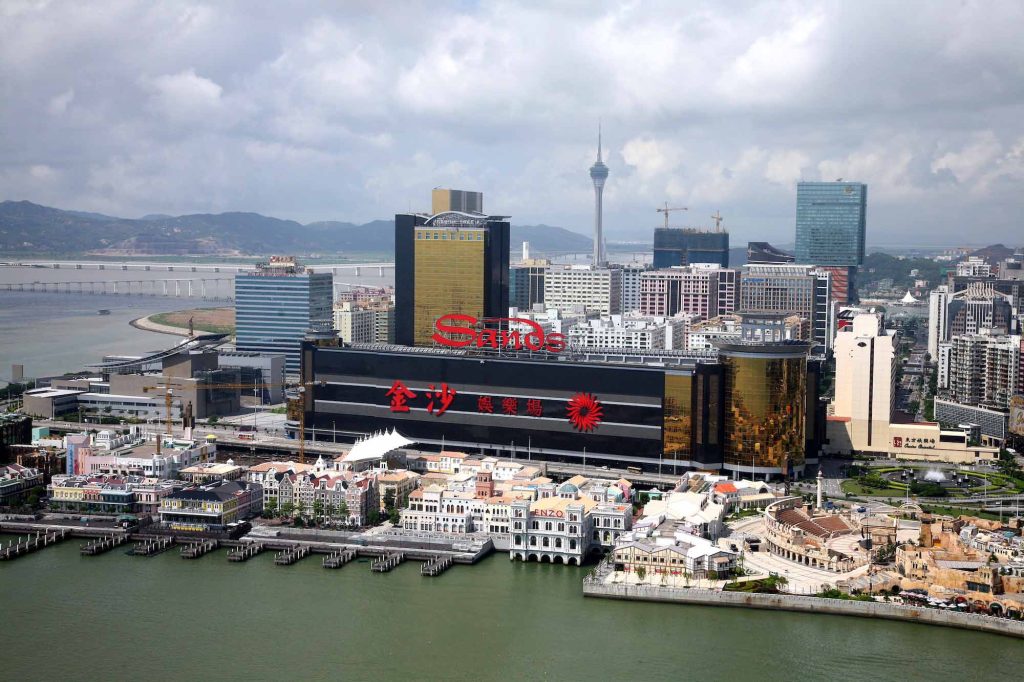
“Wow!” exclaimed Raymond Ho as he walked into Sands Macao for the first time in 2004. He remembers the sky-high ceilings, the enormous chandelier over the escalator, the sleek green-felted gaming tables, and a palpable sense of good things to come.
“It was overwhelmingly beautiful – I actually said ‘wow’ out loud, no joke!”
Until 2002, STDM had a monopoly in Macao, and it was exciting to see the city entering a new era of business. “When I heard an American company was going to open a huge casino, I was eager to join because I thought it had the potential to become massive, and I wanted to be part of that,” recalls Raymond.
There was just one problem: He had never worked in a casino before. “I had zero experience. But thankfully, the company invests in team member training,” he says, who started his journey at Sands as a VIP host. “The day Sands Macao opened its doors was the first time I served casino guests.”
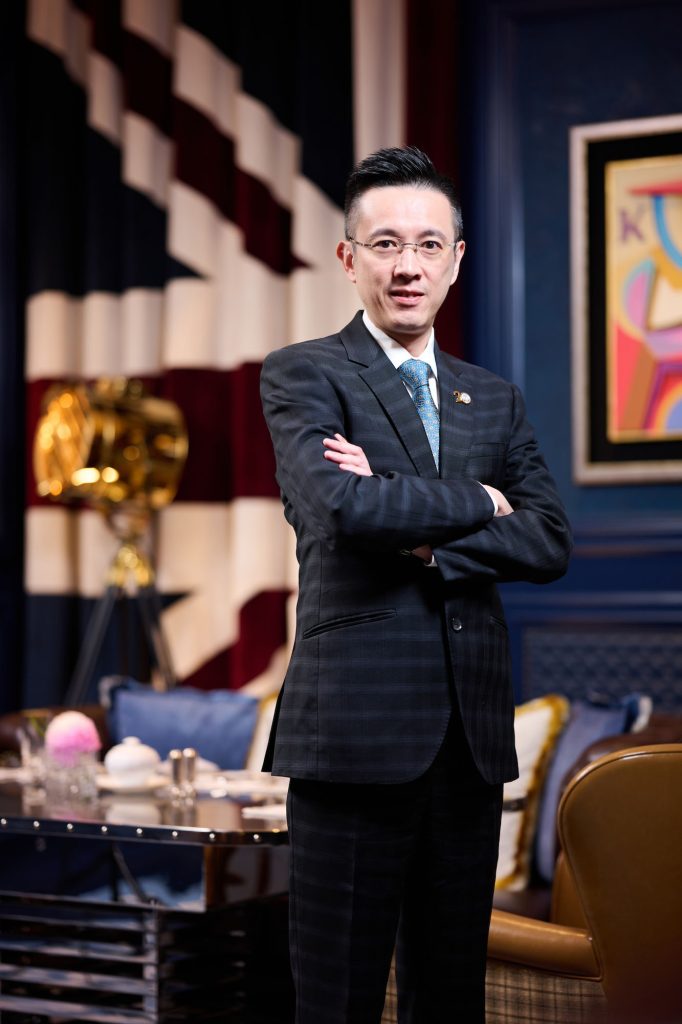
Raymond was a natural. Over the past 20 years, he has built a career with Sands China and is now the vice president of VIP gaming operations, overseeing Sands Macao and The Plaza Macao.
From the gaming floor to the executive office, he’s had a unique chance to observe the industry’s seismic shifts. “Sands Macao has had a great impact. Before the integrated resort opened, most people had negative impressions of Macao’s gaming industry. Not many people wanted to work in it – but Sands Macao changed that by diversifying the whole experience,” he says.
Suddenly, there was a wellspring of service sector jobs – not just on the gaming floor but at highly desirable establishments like Xanadu Lounge and COPA Steakhouse. Meanwhile, guests appreciated having so many different experiences under one roof, says Raymond. “There’s so much to do now,” he says. “We have the Cotai Arena, which has attracted a lot of big names like Celine Dion, Bruno Mars, and Jay Chou. Then there’s the Venetian’s gondola rides and the Sands Shoppes.”
The integrated resort also paved the way for Sands China to develop world-class infrastructure across the city for meetings, conferences, and events of all sizes. “Twenty years ago, finding a property in Macao with more than 500 rooms was impossible,” he says. “Now, The Venetian Macao alone has 3,000 rooms and suites. And Sands China has made it happen.”
Driving into the future
When Armindo Gonçalves was a teenager, he wasn’t sure where life would take him. Exploring his options, he tagged along with a friend to a Sands Macao recruitment fair. To his surprise, he had a job offer within a few days.
He was hired as a chauffeur in 2003, before the integrated resort officially opened. It was a perfect fit for Armindo. As a car enthusiast, he appreciated the chance to drive many rare and interesting vehicles. “I drove a lot of high-profile guests, so I became familiar with high-end models early on,” he says. “More recently, when The Londoner Macao opened, I couldn’t wait to drive one of the London cabs imported from the UK to Macao.”
Very quickly, Armindo stood out as a capable driver. He was calm and responsible, with an innate sense for when his guests wanted to chat or enjoy a quiet ride. So, when it came time to assign a chauffeur to Sheldon Adelson, Armindo’s manager knew he was the person for the job.
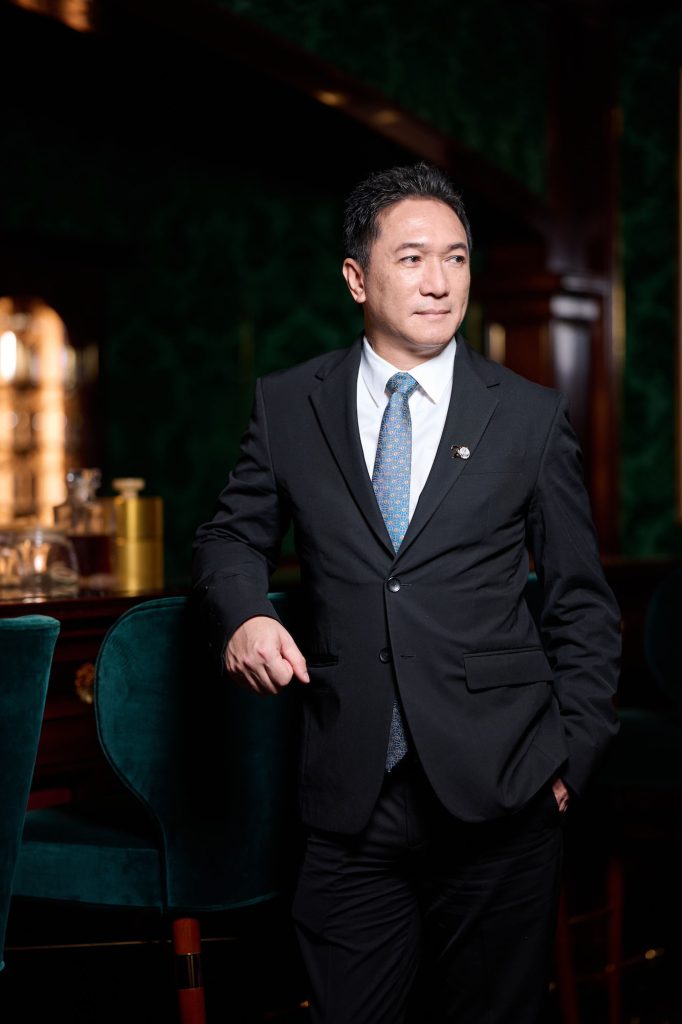
After that first assignment, Armindo became Adelson’s go-to chauffeur for the next 18 years. Every time Adelson came to Macao, Armindo drove for him, and although Adelson tended to be serious and taciturn en route, they established a rapport over the years.
“Once, Mr. Adelson didn’t feel well, so I drove him home as fast as possible. When we arrived, he simply said, ‘Very good,’ before getting out of the car,” recalls Armindo. “Later, his bodyguard said I must have done a good job because Mr. Adelson rarely praised anyone.”
Armindo’s dedication paid off, and in 2017, Armindo was promoted to assistant manager of limousine services. “Now that I work in management, I have more opportunities to interact with my colleagues,” he says. “I’m so grateful to my bosses, who have always given me valuable training and career advancement opportunities.”
Since Armindo joined Sands Macao 21 years ago, he has watched the city change through his windscreen, enjoying a front-row seat as new properties arise from the reclaimed soil of Cotai.
“It all started with Sands Macao,” he says. When I joined in 2003, it was the only integrated resort. Now, we have a thriving hospitality industry, and Mr. Adelson’s vision has completely transformed Cotai.”
It has also changed the lives of everyday people. “Our society feels more affluent and supported than in the past. There are many more job opportunities and a chance to do what you love,” says Armindo. “I feel fortunate that I found a path with Sands Macao at the very beginning.”
